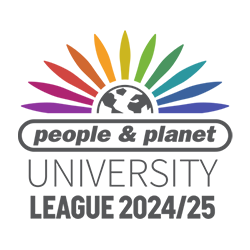-
Study
-
Undergraduate
- Search for a Course
- Undergraduate Open Day & Events
- Application Guides
- Northumbria University UCAS Exhibitions
- Foundation Years
- Undergraduate Fees & Funding
- School & College Outreach
- Continuing Professional Development
-
Postgraduate
- Postgraduate Study Degree
- Postgraduate Research Degrees
- Postgraduate Open Days and Events
- Postgraduate Fees & Funding
- Flexible Learning
- Thinking about a Masters?
- Continuing Professional Development
- Change Direction
-
Student Life
- The Hub - Student Blog
- Accommodation
- Life in Newcastle
- Support for Students
- Careers
- Information for Parents
- Students' Union
- Northumbria Sport
- Be Part of It
-
-
International
International
Northumbria’s global footprint touches every continent across the world, through our global partnerships across 17 institutions in 10 countries, to our 277,000 strong alumni community and 150 recruitment partners – we prepare our students for the challenges of tomorrow. Discover more about how to join Northumbria’s global family or our partnerships.
View our Global Footprint-
Applying to Northumbria
- European Union
- Our London Campus
- Northumbria Pathway
- International Events
- Entry Requirement and Education Country Agents
- Global Offices
-
Northumbria Language Centre
- Faculty Requirements
- Acceptable English Requirements
- Pre-sessional English Language and Study Skills
- Academic Language Skills Programmes (ALS)
-
International Fees, Funding & Scholarships
- International Undergraduate Fees
- International Undergraduate Funding
- International Masters Fees
- International Masters Funding
- International Postgraduate Research Fees
- International Postgraduate Research Funding
- International Money Matters
-
Life at Northumbria
- International student support
- Careers
-
International Mobility
- Current Northumbria Students
- Incoming Exchange Students
-
-
Business
Business
The world is changing faster than ever before. The future is there to be won by organisations who find ways to turn today's possibilities into tomorrows competitive edge. In a connected world, collaboration can be the key to success.
More on our Business Services -
Research
Research
Northumbria is a research-rich, business-focused, professional university with a global reputation for academic quality. We conduct ground-breaking research that is responsive to the science & technology, health & well being, economic and social and arts & cultural needs for the communities
Discover more about our Research -
About Us
-
About Northumbria
- Our Strategy
- Our Staff
- Place and Partnerships
- Student Profiles
- Alumni Profiles
- Leadership & Governance
- Academic Departments
- University Services
- History of Northumbria
- Contact us
- Online Shop
-
-
Alumni
Alumni
Northumbria University is renowned for the calibre of its business-ready graduates. Our alumni network has over 246,000 graduates based in 178 countries worldwide in a range of sectors, our alumni are making a real impact on the world.
Our Alumni - Work For Us
What will I learn on this module?
The aim of the module is to provide you with an opportunity to explore the real world application of information technology (IT) and information systems (IS) within industry and society. You will learn broadly how IT and IS are used in a range of industries but will then focus on a particular industry sector to carry out a more in depth investigation.
You will learn how technology and systems impact on four key areas of the organisation: business administration; communication; marketing and business/consumer engagement. As part of this module you will also learn how to work within teams, and will develop research and presentation skills. The module will complement the other modules where you learn the specifics of the technology and systems and within this module you will be able to understand where this fits into the real world.
How will I learn on this module?
The module includes a combination of methods to support learning. Lectures relating to specific industry technologies will be delivered in the first semester with supporting seminars. You will then select one particular industry area from a given choice and will be supported to investigate the use of technology within the industry area. Lectures will also be delivered to support you in your investigation. Each group will be assigned a mentor to work with who will guide you throughout the process. The initial findings from the broad investigation will be included in a Poster and Video Presentation accompanied by Contribution Matrix demonstrating your personal contribution to the research investigation and report. You will also begin to explore the concept of reflective practice as a professional attribute.
How will I be supported academically on this module?
You will be supported by the module tutor but more specifically by a mentor from the teaching team who will work with you to guide you throughout your investigation.
You will also have access to support through our Electronic Learning Platform (eLP) and the University Library; you will have access to assignment information and learning materials to support your exploration of the subject and your own learning development.
What will I be expected to read on this module?
All modules at Northumbria include a range of reading materials that students are expected to engage with. Online reading lists (provided after enrolment) give you access to your reading material for your modules. The Library works in partnership with your module tutors to ensure you have access to the material that you need.
What will I be expected to achieve?
Knowledge & Understanding:
On completion of this module you will be able to:
MLO1 Identify the key technologies and systems used within a particular industry area
MLO2 Explain the benefits these technologies bring to the organisation
Intellectual / Professional skills & abilities:
On completion of the module you will be able to
MLO3 Identify the most appropriate sources for research
MLO4 Communicate findings appropriately using written and verbal methods
Personal Values Attributes (Global / Cultural awareness, Ethics, Curiosity) (PVA):
On completion of this module you will have developed:
MLO5 A questioning approach to knowledge and awareness of issues regarding research and investigation
How will I be assessed?
Students will be required to conduct an investigation in groups into the use of information technology and information systems within a particular industry area.
Students will be required to produce:
A group report (5,000 words) – 80% (MLO1, MLO2, MLO3, MLO4, MLO5)
Reflective narrative 20%
Formative feedback will be provided throughout group meetings
Pre-requisite(s)
None
Co-requisite(s)
None
Module abstract
The module will be focussed on the development of your understanding of a broad range of Information Technology (IT) and Information Systems (IS) issues in industry and society as well as developing your research skills, including learning on techniques and methods used in academic and/or professional research. You will also develop an understanding of the research process, as well as how to design research in an applied context. This will focus on the problems and issues that occur in establishing empirical knowledge in the IT and IS area. A variety of approaches will be used to facilitate learning including the use of e-learning portal, seminars, lectures, workshops and directed learning.
Course info
UCAS Code I200
Credits 20
Level of Study Undergraduate
Mode of Study 1 year Full Time followed by a further 3 years Full Time or 4 years with a placement (sandwich)
Department Computer and Information Sciences
Location City Campus, Northumbria University
City Newcastle
Start September 2025
All information is accurate at the time of sharing.
Full time Courses are primarily delivered via on-campus face to face learning but could include elements of online learning. Most courses run as planned and as promoted on our website and via our marketing materials, but if there are any substantial changes (as determined by the Competition and Markets Authority) to a course or there is the potential that course may be withdrawn, we will notify all affected applicants as soon as possible with advice and guidance regarding their options. It is also important to be aware that optional modules listed on course pages may be subject to change depending on uptake numbers each year.
Contact time is subject to increase or decrease in line with possible restrictions imposed by the government or the University in the interest of maintaining the health and safety and wellbeing of students, staff, and visitors if this is deemed necessary in future.
Useful Links
Find out about our distinctive approach at
www.northumbria.ac.uk/exp
Admissions Terms and Conditions
northumbria.ac.uk/terms
Fees and Funding
northumbria.ac.uk/fees
Admissions Policy
northumbria.ac.uk/adpolicy
Admissions Complaints Policy
northumbria.ac.uk/complaints














